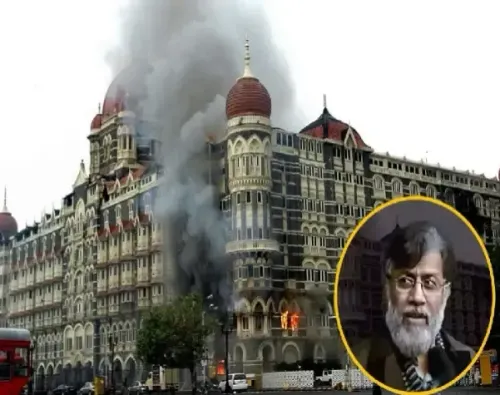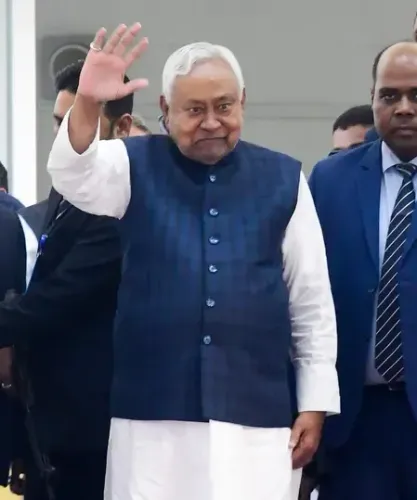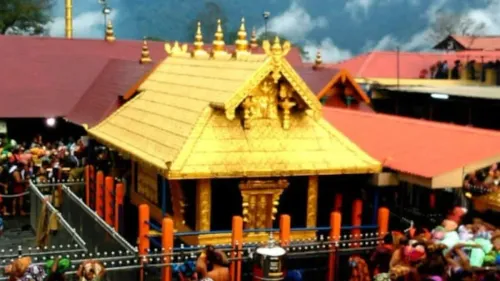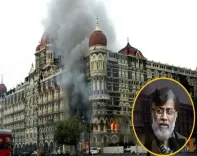Is Pakistan Bombing Its Own Citizens?
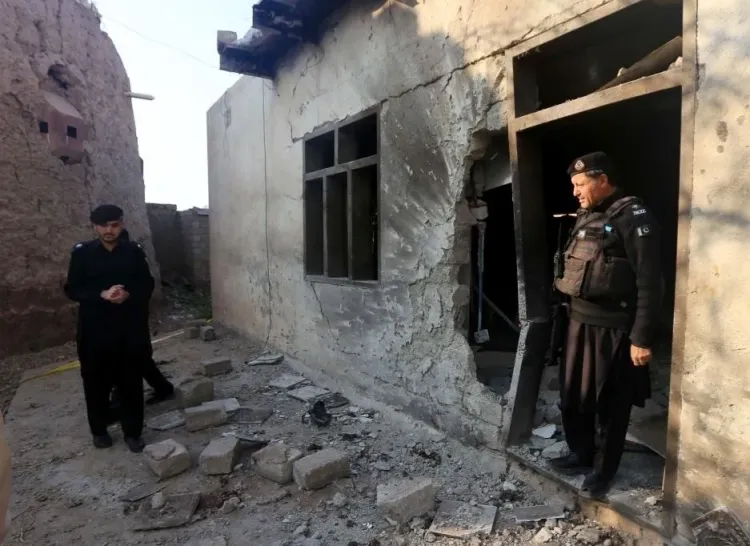
Synopsis
Key Takeaways
- Recent bombings in Khyber Pakhtunkhwa have resulted in numerous civilian casualties.
- Indiscriminate military actions are often justified as counter-terrorism.
- The humanitarian impact includes widespread displacement and suffering.
- Silence from Islamabad highlights a pattern of impunity.
- International criticism remains muted despite ongoing human rights abuses.
New Delhi, Oct 8 (NationPress) Pakistan is a state that is harming its own population. The most recent evidence emerged last week in Khyber Pakhtunkhwa, where at least 23 civilians, including women and children, lost their lives when Pakistani jets targeted residential structures in Tirah Valley.
Four homes were entirely destroyed in the assault, leaving families trapped beneath the debris. Although the military has denied responsibility, local authorities confirmed that the attack was executed under the guise of targeting Taliban strongholds. In truth, it was innocent civilians who bore the brunt of the violence.
Leader of Pakistan Tehreek-e-Insaf, Iqbal Afridi, has accused the army of launching “an assault on unarmed civilians,” clarifying that this was not a case of crossfire but rather a calculated strike.
This is not the first instance of Khyber Pakhtunkhwa suffering due to Islamabad’s wars. The region has been a battleground for decades, beginning with Pakistan’s choice in 1979 to use the tribal belt as a base for anti-Soviet jihad.
Funded by billions from the US and Saudi Arabia and guided by ISI, militant factions were trained and sheltered in the mountains that are now being bombarded.
When the Soviets retreated in 1988, these groups did not dissolve; they entrenched themselves further. Following the US invasion of Afghanistan in 2001, waves of militants crossed into Pakistan, bringing turmoil and bloodshed.
By the late 2000s, the Tehreek-e-Taliban Pakistan was established, headquartered in the very districts now ravaged by airstrikes. Islamabad claims these operations aim to combat terrorism, but evidence suggests otherwise.
Human Rights Watch and Amnesty International have consistently documented that Pakistan’s campaigns in the tribal belt rely on indiscriminate bombardments, extrajudicial killings, and collective punishment. In 2009, the military’s operation in South Waziristan displaced over half a million people.
In 2014, the so-called Operation Zarb-e-Azb uprooted nearly a million more. In both instances, airstrikes obliterated entire villages.
The Bureau of Investigative Journalism, monitoring drone strikes and Pakistani air raids, estimates that thousands of civilians—including women and children—were killed in Pakistan’s tribal belt between 2004 and 2018 alone. Yet official reports often label these deaths merely as “terrorist casualties,” obscuring the truth of who was actually lost.
The humanitarian impact is staggering. Over three million individuals from Khyber Pakhtunkhwa and the former Federally Administered Tribal Areas have been displaced since the early 2000s.
Refugee camps remain overcrowded, underfunded, and neglected, with families lacking basic healthcare, education, or clean water. Entire generations of Pashtun children are growing up under the shadow of fighter jets and drones. For them, the Pakistani flag does not symbolize safety but fear.
Each bombing deepens resentment, fueling the very militancy Islamabad professes to combat. Research by conflict-monitoring organizations confirms that civilian fatalities at the hands of state forces correspond with increased rates of insurgent recruitment.
In essence, Pakistan is creating the adversaries it claims to fight. The silence from Islamabad is perhaps the most damning evidence of impunity.
After the Tirah Valley strike, no government official stepped forward with an explanation. No investigation was initiated. No reparations were offered to families mourning their homes and loved ones.
This pattern is consistent: when the Pakistan Air Force bombed villages in North Waziristan in 2014, killing numerous civilians, no independent inquiry followed.
When artillery fire struck refugee camps in Kurram Agency in 2008, Islamabad dismissed reports as “enemy propaganda.”
Each massacre vanishes from public record, erased by the military’s stringent control of media narratives. The ethnic aspect cannot be overlooked. Most victims of these operations are Pashtuns, a community historically treated as second-class citizens in Pakistan.
The Pashtun Tahafuz Movement (PTM) has consistently advocated against extrajudicial killings, enforced disappearances, and indiscriminate airstrikes, yet its leaders face harassment, arrest, and silencing.
The military’s branding of entire Pashtun populations as “terrorist sympathizers” has fostered a system where civilian lives are viewed as expendable. When bombs drop on Pashtun villages, the ruling elite in Lahore and Islamabad barely registers the tragedy.
What makes this even more hypocritical is Pakistan’s duplicity with militancy. For decades, Islamabad has harbored groups like the Afghan Taliban and the Haqqani Network, providing them with safe havens while repressing local Pashtuns under the guise of counter-terrorism.
Even today, international analysts note that Pakistan distinguishes between “good Taliban,” who align with its strategic objectives, and “bad Taliban,” who oppose its authority.
This cynical division means that the full force of military power is directed not against insurgents but against civilians caught in the crossfire. The outcome is what we witnessed in Tirah Valley: deceased women, deceased children, and a government that acts as if nothing occurred. The repercussions of Pakistan’s militarized policies extend beyond its borders.
Every time Islamabad bombards its own civilians, it destabilizes the broader region. Refugees flee into Afghanistan, straining already fragile systems there. Cross-border violence escalates, perpetuating cycles of retribution. International jihadist networks utilize these massacres as propaganda, showcasing them as evidence of state brutality.
Pakistan’s actions, instead of containing militancy, proliferate it across South and Central Asia. International silence only exacerbates the tragedy.
Western governments that routinely criticize human rights abuses in other nations remain silent when Islamabad bombs its own villages. Pakistan presents itself as a crucial ally in the “war on terror,” but the reality is much darker.
This is the same state that fostered militant networks for strategic advantage, the same military that sheltered the Afghan Taliban leadership, and the same intelligence apparatus that has played a duplicitous game for decades. Today, it justifies civilian massacres under the guise of counterterrorism while seeking international aid and legitimacy.
The 23 victims in Tirah Valley are not collateral damage. They are the most recent casualties of a system that perceives its own populace as targets. From Waziristan to Swat, from Bajaur to Khyber, the sequence is the same: bomb first, deny accountability, and move on without repercussions.
The cycle will persist until Pakistan dismantles its militarized policies, ceases indiscriminate air campaigns, and begins to regard the people of Khyber Pakhtunkhwa as citizens rather than adversaries.
Families who lost everything in a single airstrike do not require more empty promises about security. They seek justice, recognition, and the right to exist without fear from their own military. Until that occurs, the truth remains clear and undeniable: Pakistan is a state that is killing its own people.


